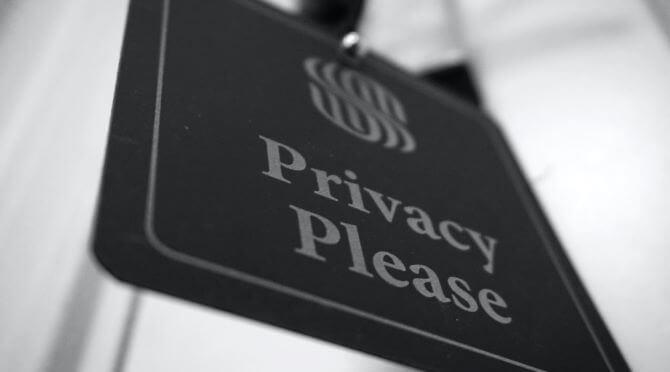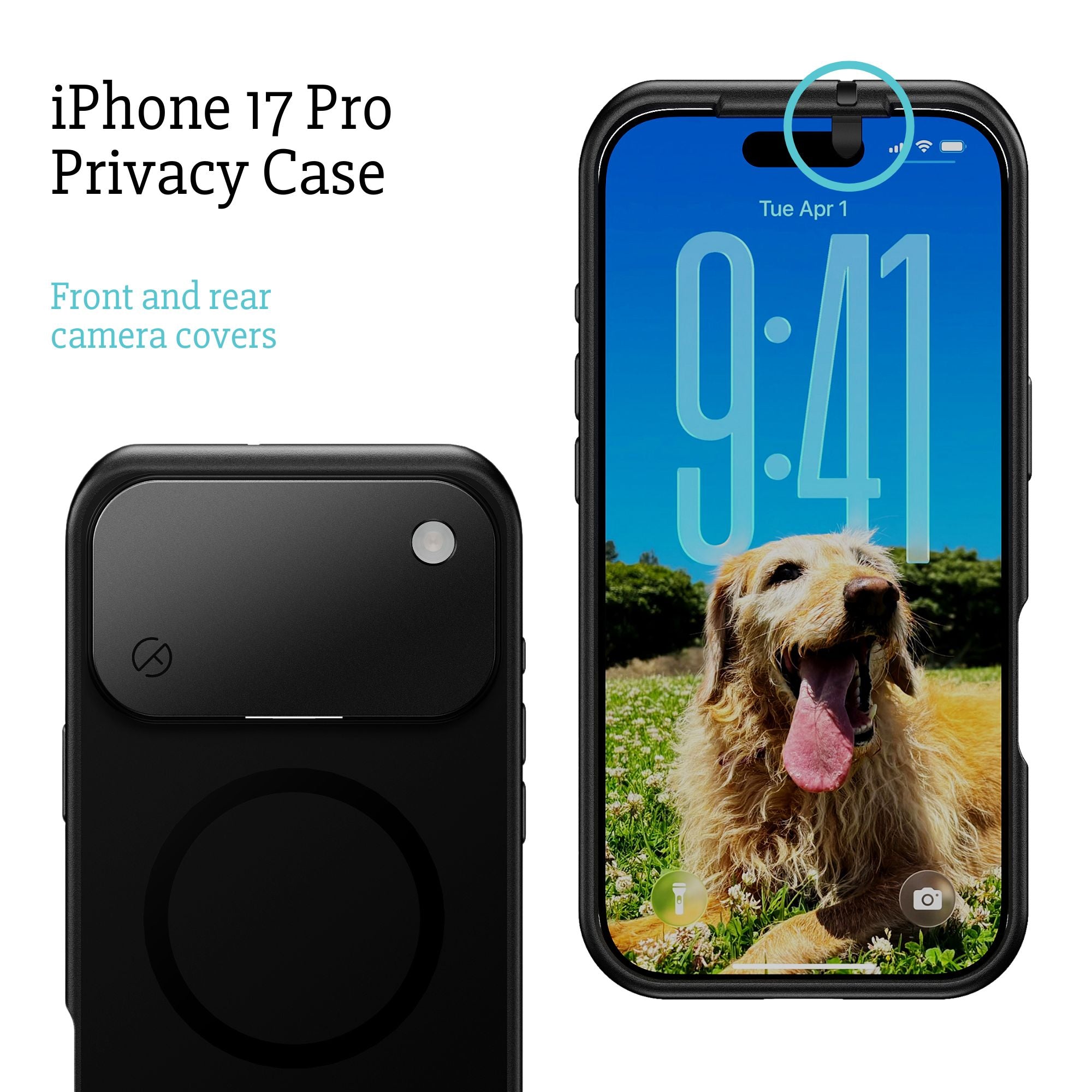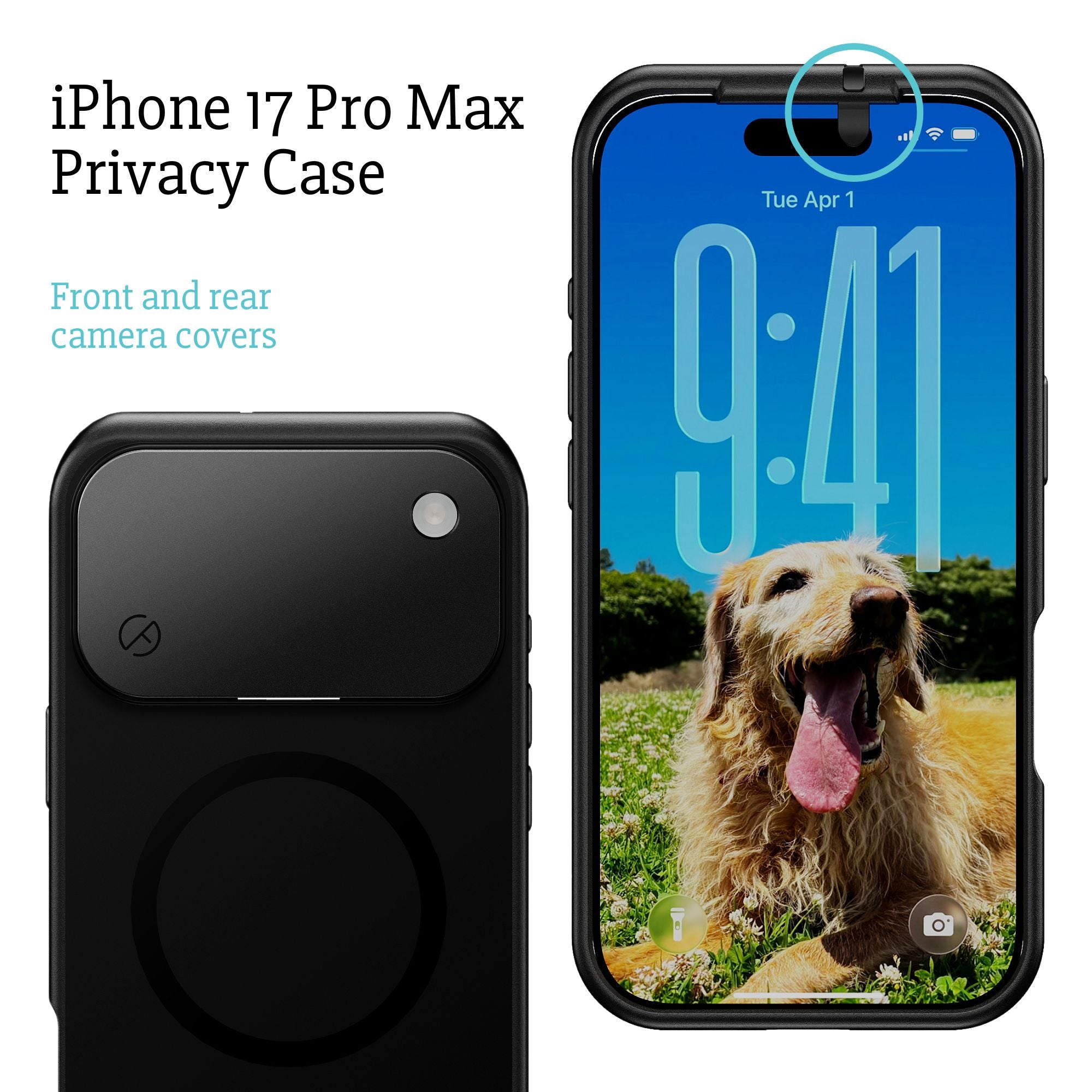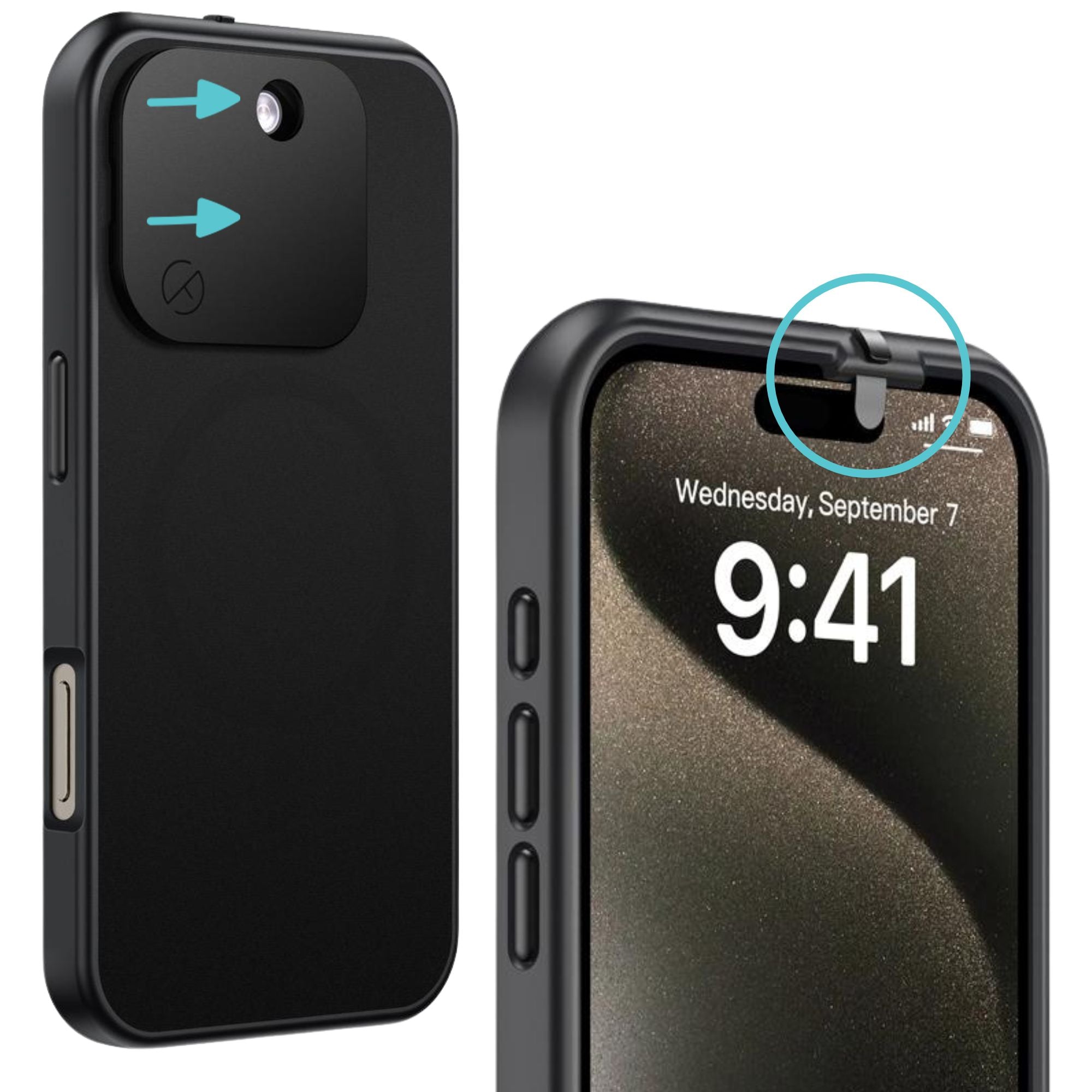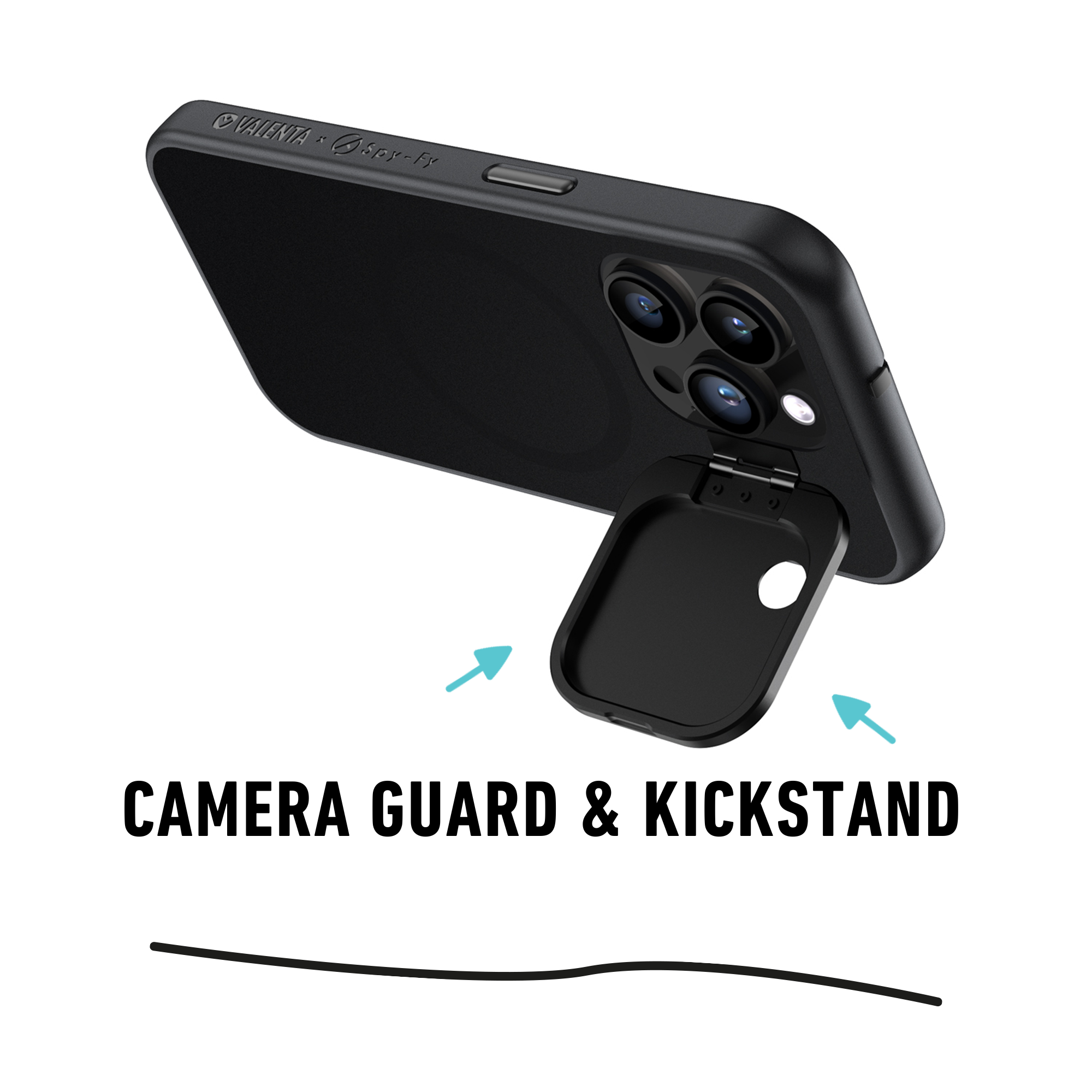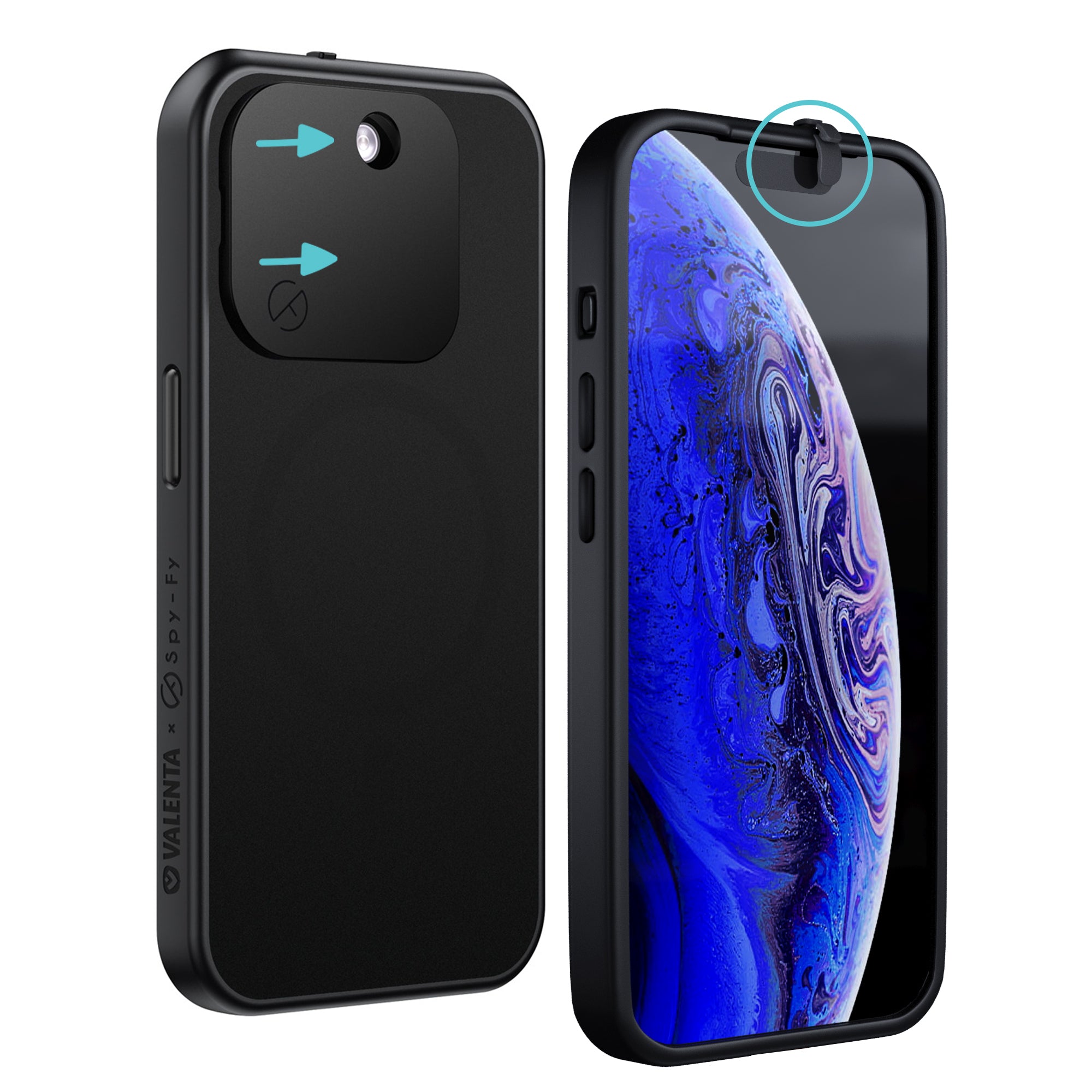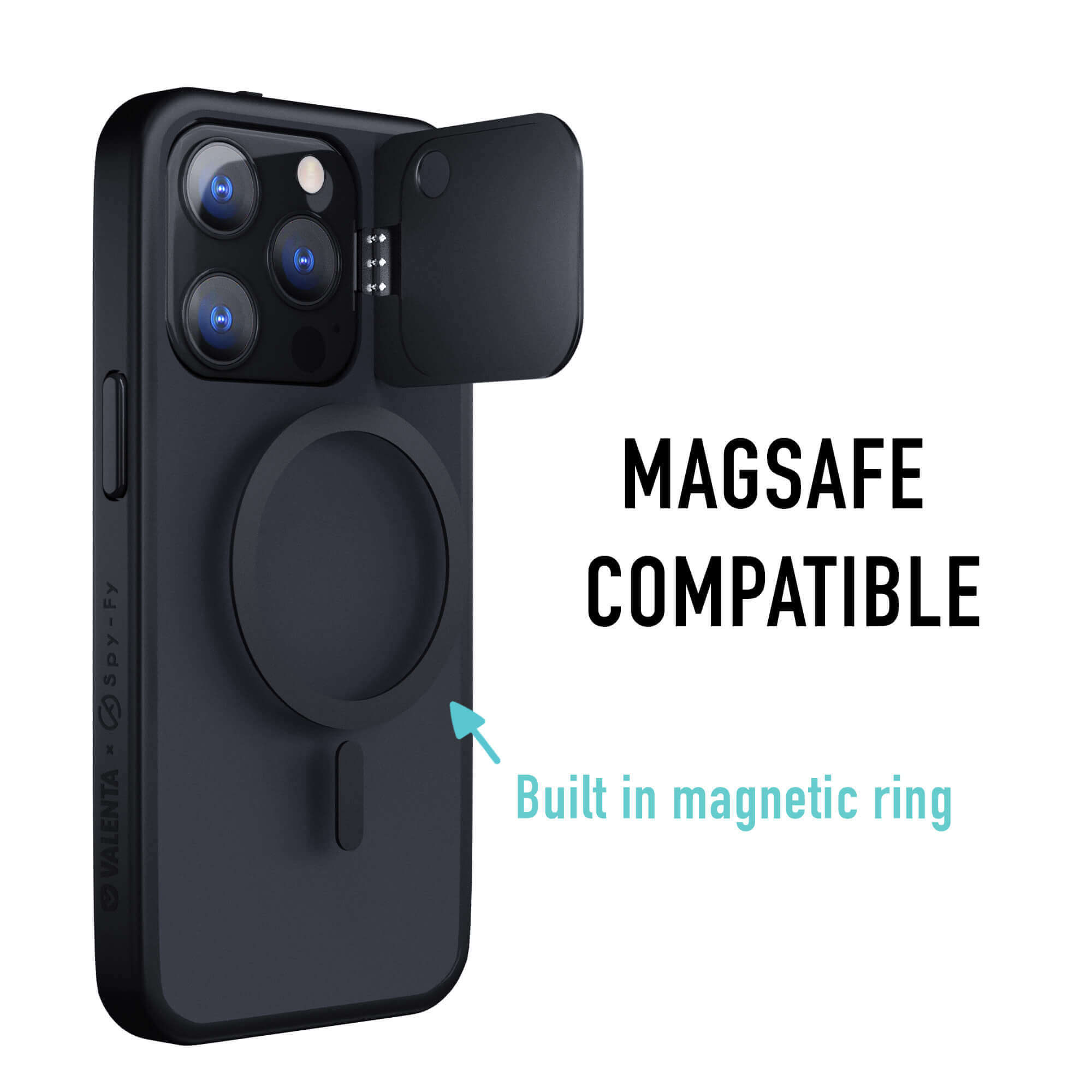Protect your privacy in 2021 by adopting these 4 New Year’s privacy resolutions: create and use stronger passwords, say yes to software updates, cover up your webcam/iPhone cameras, and check your privacy settings.

 Keep your private moments private by investing in a webcam cover like the Spyslide or an iPhone Privacy Case. A webcam cover is a privacy product that can be placed directly over the camera on your devices such as laptops, smartphones, or tablets. The purpose of a webcam cover is to prevent webcam espionage. Why should you use a webcam cover? Privacy protection is the number one reason to use a camera cover on your smart devices. The reward of protecting your personal privacy is better than the risk of leaving yourself exposed to potential cyber-attacks. Security experts and tech guys, including the FBI and Mark Zuckerberg, cover up their webcams. Although webcam hacking has been in the news for the last few years, the potential for iPhone camera hacking is becoming more of a hot topic in the privacy world. Spy-Fy created the iPhone Privacy Case to protect people from camera hacking on their iPhones. A recent article by Consumer Reports emphasises the risks posed by our smartphones “there is a real, if remote, risk that hackers could take control of your devices’ cameras and microphones”. Spy-Fy’s iPhone Privacy Case allows you to cover up your iPhone cameras with a simple slide system. Both the front and back cameras are covered in order to protect against potential vulnerabilities.
Keep your private moments private by investing in a webcam cover like the Spyslide or an iPhone Privacy Case. A webcam cover is a privacy product that can be placed directly over the camera on your devices such as laptops, smartphones, or tablets. The purpose of a webcam cover is to prevent webcam espionage. Why should you use a webcam cover? Privacy protection is the number one reason to use a camera cover on your smart devices. The reward of protecting your personal privacy is better than the risk of leaving yourself exposed to potential cyber-attacks. Security experts and tech guys, including the FBI and Mark Zuckerberg, cover up their webcams. Although webcam hacking has been in the news for the last few years, the potential for iPhone camera hacking is becoming more of a hot topic in the privacy world. Spy-Fy created the iPhone Privacy Case to protect people from camera hacking on their iPhones. A recent article by Consumer Reports emphasises the risks posed by our smartphones “there is a real, if remote, risk that hackers could take control of your devices’ cameras and microphones”. Spy-Fy’s iPhone Privacy Case allows you to cover up your iPhone cameras with a simple slide system. Both the front and back cameras are covered in order to protect against potential vulnerabilities.
Increase your privacy protection with these 4 simple resolutions:

#1 Create and use stronger passwords
This privacy resolution will help keep your privacy protected in 2021. Making sure your passwords are strong is a great way to start protecting your accounts in 2021! Wired interviewed password security experts and came up with the following tips to help you improve your password security: - Longer passwords are better than shorter passwords: Try to aim for passwords between 12 – 15 characters. - Unique passwords are better than common passwords: Don’t use common words like the name of your childhood pet or at trending pop-culture icon. (Here’s looking at all the people who are using BabyYoda as a password this year). - Common passwords are more easily guessed. Try to use random words or combinations of letters, words, numbers, symbols, and upper-case and lower-case letters. - Don’t cluster up special characters and numbers: for example, don’t just add a year to the end of your password plus an exclamation point. (So don’t use 2021! in your password…). This type of password is easier to crack. Instead, mix your special characters and numbers into your password. - Don’t use the same password for different accounts. I get it; it’s easier to reuse passwords. But if you reuse passwords, once one account has been compromised, other accounts may quickly follow. Try using a password manager if you want an easier way to remember all your different passwords. - Use multifactor identification methods. Use two-factor authentication to give your accounts an added layer of protection.#2: Say yes to software updates
Many of us prefer to press ignore when our computers remind us that an update is in order. Updates take time, and seem to always come at the most inconvenient moments. But, there are many reasons why it is important to say yes to those updates when they pop up. According to McAfee, “this is a mistake that keeps the door open for hackers to access your private information, putting you at risk for identity theft, loss of money, credit, and more.” Updates happen for a reason – there is something that must be fixed. Sometimes, this is a security flaw. Consider setting up auto-updates on your devices. Some devices even have options to schedule these updates in advance so that they will not disturb you at an inconvenient moment. This way, you never miss a chance to protect your privacy.#3: Cover up your webcam and iPhone cameras
 Keep your private moments private by investing in a webcam cover like the Spyslide or an iPhone Privacy Case. A webcam cover is a privacy product that can be placed directly over the camera on your devices such as laptops, smartphones, or tablets. The purpose of a webcam cover is to prevent webcam espionage. Why should you use a webcam cover? Privacy protection is the number one reason to use a camera cover on your smart devices. The reward of protecting your personal privacy is better than the risk of leaving yourself exposed to potential cyber-attacks. Security experts and tech guys, including the FBI and Mark Zuckerberg, cover up their webcams. Although webcam hacking has been in the news for the last few years, the potential for iPhone camera hacking is becoming more of a hot topic in the privacy world. Spy-Fy created the iPhone Privacy Case to protect people from camera hacking on their iPhones. A recent article by Consumer Reports emphasises the risks posed by our smartphones “there is a real, if remote, risk that hackers could take control of your devices’ cameras and microphones”. Spy-Fy’s iPhone Privacy Case allows you to cover up your iPhone cameras with a simple slide system. Both the front and back cameras are covered in order to protect against potential vulnerabilities.
Keep your private moments private by investing in a webcam cover like the Spyslide or an iPhone Privacy Case. A webcam cover is a privacy product that can be placed directly over the camera on your devices such as laptops, smartphones, or tablets. The purpose of a webcam cover is to prevent webcam espionage. Why should you use a webcam cover? Privacy protection is the number one reason to use a camera cover on your smart devices. The reward of protecting your personal privacy is better than the risk of leaving yourself exposed to potential cyber-attacks. Security experts and tech guys, including the FBI and Mark Zuckerberg, cover up their webcams. Although webcam hacking has been in the news for the last few years, the potential for iPhone camera hacking is becoming more of a hot topic in the privacy world. Spy-Fy created the iPhone Privacy Case to protect people from camera hacking on their iPhones. A recent article by Consumer Reports emphasises the risks posed by our smartphones “there is a real, if remote, risk that hackers could take control of your devices’ cameras and microphones”. Spy-Fy’s iPhone Privacy Case allows you to cover up your iPhone cameras with a simple slide system. Both the front and back cameras are covered in order to protect against potential vulnerabilities.
#4: Check your privacy settings
Checking and updating your privacy settings is one easy way to start protecting your privacy in 2021. This should be done for all the social media apps you are using and your smart devices. There are several settings you should check out:- Who can view your social media posts?
- Who can send you messages on social media? Friends? Strangers?
- Check to see what your social media profile looks like to the public.
- Check to see who can find you – friends, acquaintances, the whole world?
- Check to see how people can find you on social media.
- Which apps have permission to access data from your social media?
- Look into your location services – which apps have requested permission to track you?
- Are you giving permission to share smartphone analytics?
- Did you turn on limit ad tracking?
- Have you set your old messages to auto-delete?


